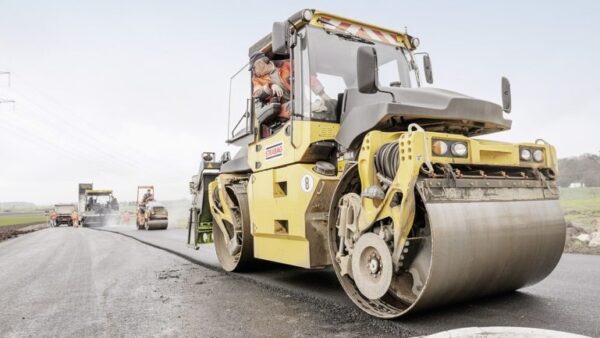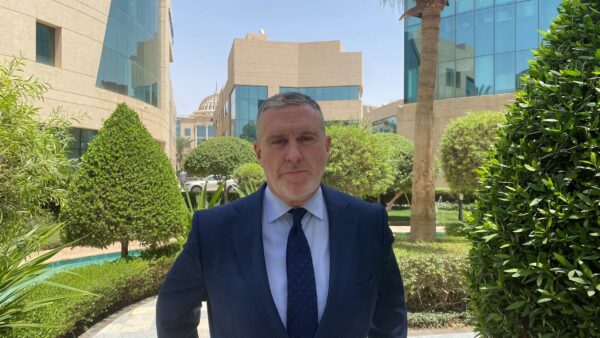Brazil’s second-biggest contractor, Andrade Gutierrez, has agreed to a plea deal with federal prosecutors in return for leniency for its role in the country’s massive corruption scandal, and will pay a billion Brazilian reais ($284m) to settle the allegations.
In an unprecedented public admission yesterday it also issued a “sincere apology” to “all Brazilians”, saying: “it is time for the company to publicly and transparently admit its errors to the Brazilian public and remedy the harm it has caused the country, as well as its own reputation.”
The company also issued a “manifesto for a better Brazil”, recommending eight steps to clean up public procurement to ensure “ethics and social responsibility while safeguarding the taxpayers’ money”.
We expect infrastructure industry representatives and companies to come together as part of a movement to bring greater efficiency and transparency to the market, once and for all, to build a better Brazil– Andrade Gutierrez statement
Its statement followed the ratification last week (5 May) of the leniency deal by Judge Sergio Moro, who has been spearheading a nation-wide probe, called Operation Lava Jato (“carwash”), into bribes paid by major contractors for state contracts.
The scandal has engulfed the country’s government, which is today in a state of political chaos over attempts to have President Dilma Rousseff impeached for misconduct.
A number of senior serving or former construction executives have already been jailed as a result of the investigation, and Andrade Gutierrez’s own former president has been arrested on multiple corruption charges.
Details of Andrade Gutierrez’s revelations during plea bargaining will draw intense interest in Brazil’s febrile political atmosphere after executives from the company testified last month that President Rousseff’s 2014 reelection campaign was partly funded with kickbacks from large infrastructure projects, according to local reports.
While Operation Lava Jato focussed initially on contracts awarded by state oil company Petrobras, other infrastructure projects have come under the spotlight.
According to reports the executives last month said bribes were paid to win contracts that included the Angra 3 nuclear power station, the Belo Monte hydroelectric dam and three stadiums built for the soccer World Cup held in Brazil in 2014.
In its “Apology and Manifesto for a Better Brazil”, published on its website and appearing in several newspapers, the company says it will make up for the damage it has caused.
“We acknowledge that serious mistakes have been made in recent years and instead of denying them, we are admitting them publicly,” the company said. “However, an apology alone does not go far enough: we need to learn from the mistakes we have made and, more importantly, take firm steps to make sure they never happen again.”
Portraying its corrupt practices as already in the past, the company said it had been setting up a “modern Compliance model, based on a strict Code of Ethics that reflects global best practices” since December 2013.
But it added: “We are aware that the path to improvement is a long one, but we want to reiterate our commitment to tolerating absolutely no ethical or moral missteps of any nature. Additionally, and as part of this improved framework, we will continue honoring our commitment to collaborate with the authorities as their investigations move ahead.”
It also said Operation Carwash could “act as a catalyst, bringing about deeper cultural changes in the way we do business in Brazil.”
The statement included eight infrastructure procurement reforms, which the company said would lead to a “better Brazil”. They are:
- Technical and economic feasibility studies must be submitted prior to issuing bidding documents, rejecting projects that did not contribute towards national development;
- Detailed engineering projects should be mandatory and made available prior to bidding processes, so that realistic quotes can be drawn up. This would also help avoid illusory forecasts that result in quality problems, delays, contract cancellations or a combination of the above;
- Environmental permits must be obtained in advance, avoiding legal disputes throughout the project and delayed starts, in breach of legislation;
- Service and quality measurements should be carried out by specialist companies, avoiding subjective or biased interpretations;
- Guarantees must be put in place to protect both parties’ contractual rights, ensuring these rights can be equitably enforced;
- A governance model for state-owned companies and government agencies is needed to ensure technical decisions are taken by technical experts with no political affiliation, who have passed the necessary government hiring exams;
- Work should only begin when there are guarantees that the necessary funding is available and is tied to the project until its conclusion;
- Guarantees that companies and contractors who fail to fulfil their contracts are punished.
“We are aware that these changes will not be possible if the industry as a whole and the people of Brazil are not engaged with this issue,” the statement said, adding: “Andrade Gutierrez therefore expects infrastructure industry representatives and companies to come together as part of a movement to bring greater efficiency and transparency to the market, once and for all, to build a better Brazil.”
Photograph: The Amazon Arena football stadium in Manaus, Brazil, built by contractor Andrade Gutierrez for the 2014 World Cup. Company executives testified that bribes were paid for stadium contracts (Wikimedia Commons)
Comments
Comments are closed.







From inception to full completion internationally accredited codes of ethical practice need to become the performance yardstick whereby ,as a worldwide major industry, we stand or fall! In addition ,legislation alone cannot provide the vital ethical controls, so desperately needed, to clean up the unfortunate public image we have in too many parts of the globe!